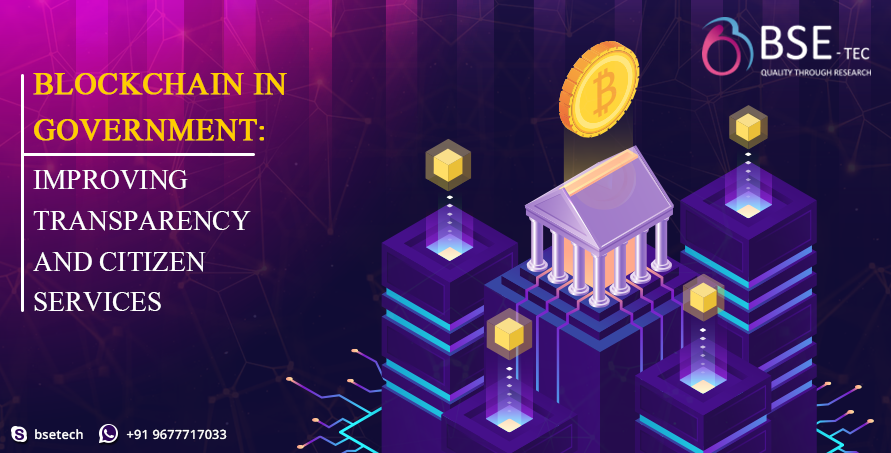Blockchain in Government: Improving Transparency and Citizen Services

Learn how blockchain is revolutionizing government operations by increasing transparency and improving citizen services. Discover more now. Here and There Blockchain contributes widely to its originality in security, reliability & transparency. Our globe strives to adopt blockchain in government & non-governmental sectors.
Blockchain in government can accelerate government functions by,
– Preventing corruption
Implement a digital payment system in eGovernance, Blockchain in the Government sector monitors each transaction and prevents corruption using encrypted keys.
– Mismatch data in E-voting or Voting systems
Issued voter ID but name /info gets mismatched, Blockchain plays a vital role in identity and verification of data to prevent fraudulent services.
– Land registry in real-estate
Carrying documents as papers is it safe? upgrade registration with blockchain using E-signatures /digital verification step away from untrusted /unverified properties.
– Creation /retrieving medical records in healthcare & banking
Keep patients updated with their medical progress digitally secure in blockchain to eradicate missing data among groups.
Can we try out blockchain in government?
As per our constitutional law rights, each individual holds the Right to Vote. Only 67% cast their vote but recently it has drawn considerable negative attention due to corruption. Most common incidents like manipulating ballot boxes and voter info disappearing from registries happen in every election. Not only does this voting system get outdated, but it’s also vulnerable due to major security vulnerabilities.
So, why not migrate this process to a blockchain? The implication of blockchain in government for land registrations, e-voting systems and digital identity management systems?
Sample Scenario of blockchain in Government systems:
Blockchain-based digital identity systems can be used to give citizens more control over their personal data with distributed ledger technology to create a more secure and convenient digital voting system by enabling secure identity management, or e-identity. In e-voting, citizens cast their ballots using e-voting machines. These machines record data on the blockchain and manage data of any type. The network comprises peers and nodes. Nodes verify, process and record all transactions across the system which is tamper-proof (data can’t be altered) making it easier for government agencies to verify the identities of individuals using blockchain to cast their vote and maintains transparency among voters. The network is highly secure, it prevents voter fraud in elections as there are no duplicate IDs. Compared to traditional vote counts, which can take days, blockchains can produce results in minutes or less.
- Increase voter turnout and reduce the risk of voter fraud.
- Validates each encrypted vote, and the public records each vote on distributed copies of the blockchain ledger.
- Eliminates a single point of failure and inherently protects sensitive citizen and government data.
- On a blockchain-based government model, individuals, businesses, and governments share resources over a distributed ledger secured using cryptography.
Secure sharing of data between citizens and agencies can increase trust while providing an immutable audit trail for regulatory compliance, contract management, identity management, and citizen services.
Blockchain can help the government work smarter and innovate faster, maintain the authenticity of the document and clearly reduce the processing time.
NISG (National Institute of Smart Governance) initiatives to use blockchain in e-governance. These modernized workflows can equip the government to design citizen-centric applications that cater to different verticals of governance. Various countries have started blockchain implementations across vertical certification, land registries, and various e-governance services conveying to the public as Blockchain for Government’ – a niche technology whose adoption would aid the government in implementing various programmes and provide trust & immutability to the assets.
Government agencies may face challenges in recruiting and retaining blockchain experts, as the field is still relatively new, and you can reach BSEtec –a leading blockchain development company involved with a pool of blockchain experts contact us for more details.
Did you find this article useful? Let us know by leaving a comment below, or join us on Twitter and Facebook.




